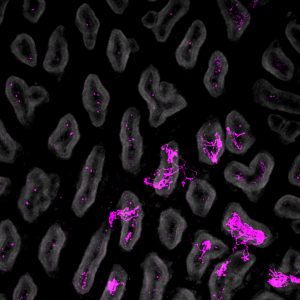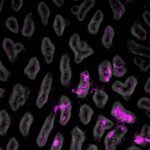
Intestinal Stretch Tells Brain to Switch Off Appetite
Some exciting new research that may explain why one person can eat more than another before they are full. Also why the gastric bypass significantly reduces appetite and the desire to eat.
Although, it is well established that gastric bypass surgery enables people to lose weight the way in which it works has yet to be truly established. Why do people feel so full, why do people react to fatty and sugary foods, why are taste changes and desires for food so radically changed? People who have previously enjoyed eating a burger find themselves repulsed by it and reaching for a salad instead. Individuals feel disproportionally full after a small amount of food.
Research is ongoing, but a team at the University of California has made some exciting discoveries that may answer one of those questions, such as why does an individual feel so full on such a small amount of food? The team found that stretch receptors in the small intestine rather than the stomach may send a message back to the brain via the vagus nerve saying that we are full.
It has been generally thought that the surgery effectively reduces the size of the gut, and researchers have suspected that one reason why the procedure is so effective at blocking hunger is that it causes food to pass very rapidly from the stomach into the intestine. “This is thought to promote satiety by over-activating intestinal nutrient sensors, thereby causing exaggerated release of gut peptides, but it has been challenging to confirm this model experimentally,” the scientists commented. The new findings suggest that rather than overloading nutrient receptors, the rapid passage of food stretches the intestine, activating the vagal stretch sensors and so blocking feeding. “Our data suggest an alternative explanation for this phenomenon: that mechanical distension of the intestine may itself be the signal that triggers the profound reduction in hunger caused by bariatric surgery.”
These findings are interesting as another reminder that obesity is a complex disease, that our individual biology influcences how much we eat. If our stretch receptor is less sensitive do we need to eat a lot more before we reach satiety?
We know so very little about why we eat the amounts we do, how it is regulated and why we choose the food we do. Interestedly it is the gastric bypass that researchers are using to answer some of these questions. Perhaps, we have the treatment for obesity and now have to work back to find out exactly how it works.
*Disclaimer: Please note that weight loss surgery results and benefits are unique to each individual and in such The Bariatric Group cannot guarantee specific weight loss goals as results for each surgery can vary. If you have any questions or would like to know more about weight loss surgery please contact our expert team.



